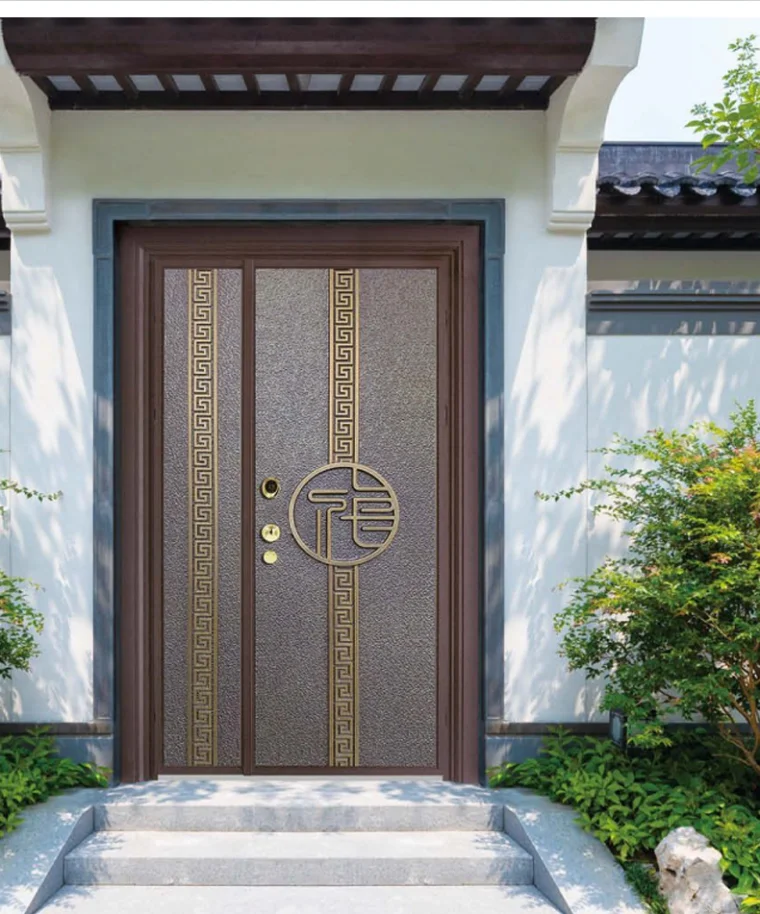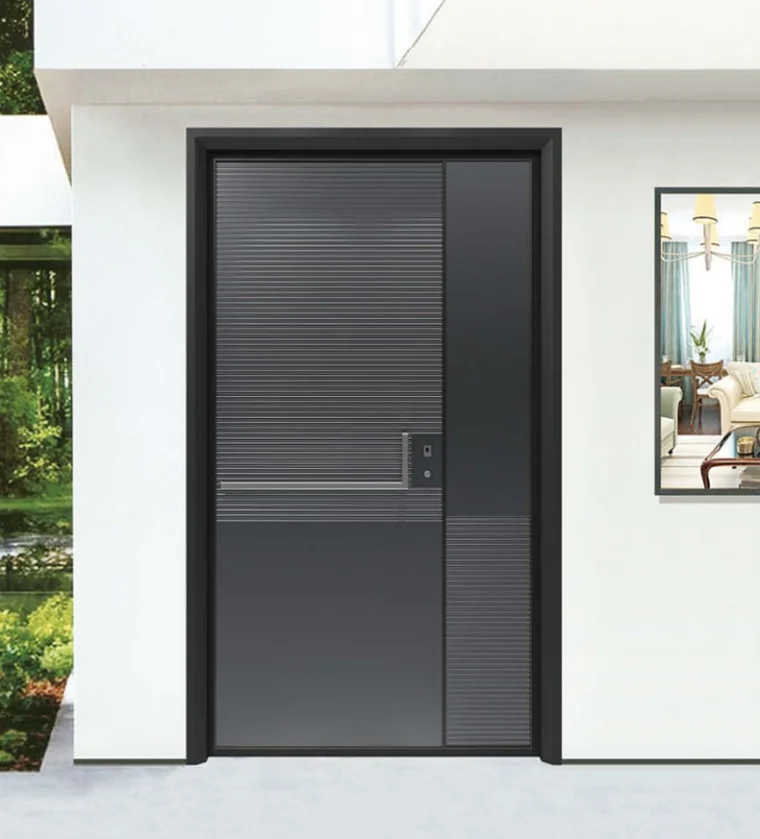- This topic is empty.
-
AuthorPosts
-
25/04/2025 at 18:04 #86101
In an era where security threats and unauthorized access can significantly disrupt business operations, the need for high-performance protective barriers has never been more critical. Commercial properties, whether they house offices, retail outlets, or industrial warehouses, require security solutions that are both reliable and long-lasting. One of the most robust and trusted solutions today is the steel armored door.
These doors are not only built to withstand external force but are also designed to deliver peace of mind through their advanced engineering and resistance capabilities. This article explores how steel armored doors are shaping the security landscape in commercial buildings, focusing on their benefits, structure, customization options, and the key factors to consider before installation.
What Are Steel Armored Doors?
Steel armored doors, often referred to as security or reinforced doors, are specialized entry systems constructed primarily from galvanized or stainless steel. They are engineered to resist forced entry, fire, and environmental damage. The "armored" component refers to the additional reinforcement layers—such as composite materials or internal steel sheets—used to increase structural strength without compromising functionality or aesthetics.
While these doors are widely used in high-security environments like banks, government buildings, and data centers, they are increasingly becoming standard in commercial spaces due to rising concerns about vandalism, burglary, and workplace safety.

Key Benefits of Steel Armored Doors in Commercial Buildings
1. Unmatched Security
Security is the foremost reason businesses opt for armored doors. Thanks to their solid core construction, multi-point locking systems, and anti-pry features, steel armored doors are extremely difficult to breach. Many models are certified to meet international security standards such as EN 1627 or UL 752, which guarantee protection against mechanical attacks and ballistic threats.
For businesses that handle sensitive information, valuable goods, or cash, these doors act as the first line of defense, significantly reducing the risk of intrusion.
2. Superior Durability and Longevity
Steel is renowned for its durability, and when used in door construction, it translates to a product that withstands years of heavy use. Unlike wooden or standard aluminum doors, steel armored doors resist warping, rust, corrosion, and damage from impact. With proper maintenance, these doors can last for decades without losing their structural integrity.
They are also ideal for harsh environments—industrial zones, coastal regions, or places with extreme temperatures—where traditional doors tend to degrade rapidly.
3. Fire and Weather Resistance
Most high-quality steel armored doors come with fire-rated certifications, meaning they can prevent the spread of flames and smoke for a specified duration (commonly 30, 60, or 90 minutes). This feature is essential in commercial buildings where fire safety regulations are strict.
Additionally, these doors offer excellent insulation against weather elements such as wind, rain, and snow. Sealed frames and gaskets ensure airtight and watertight protection, enhancing indoor energy efficiency.
Structure and Components of a Steel Armored Door
A standard steel armored door consists of several key components:
Steel Core
The internal layer, often made from galvanized or stainless steel sheets, forms the backbone of the door and is responsible for withstanding forceful impact.
Reinforced Frame
The frame is also made of heavy-duty steel, securely anchored into the surrounding wall to prevent kick-ins or prying.
Multiple Locking Points
Unlike regular doors with single-point locks, armored doors typically feature multi-point locking systems that secure the door from multiple directions—top, bottom, and side.
Thermal and Acoustic Insulation
High-quality armored doors contain internal insulation made of polyurethane foam or mineral wool, which improves thermal efficiency and reduces noise pollution.
Anti-Leverage Hinges and Bolts
These components prevent burglars from removing or detaching the door, even if the hinges are exposed.

Industries That Benefit Most from Steel Armored Doors
Retail Stores
With high foot traffic and on-site inventory, retail stores are frequent targets for theft. Installing steel armored doors at service entries, storag
e rooms, or cash vaults can significantly enhance security.
Warehouses and Manufacturing Plants
These facilities often house expensive machinery and raw materials. Steel doors offer the durability needed to protect against both external and internal threats, such as fire or environmental hazards.
Financial Institutions
Banks and financial service centers rely on bulletproof and explosion-resistant doors, many of which are upgraded versions of standard armored steel doors with added ballistic panels.
Data Centers
With cyber and physical security both playing a role in data protection, steel armored doors help prevent unauthorized physical access to server rooms and infrastructure.
Healthcare and Pharmaceutical Facilities
Hospitals and drug storage rooms require secure access control and fire protection, making armored doors ideal for controlling entry to restricted areas.
Things to Consider Before Installing Armored Doors
1. Security Rating and Certification
Ensure the product has been tested and certified by recognized bodies such as ISO, CE, or Underwriters Laboratories. Look for ratings that match your security level requirements—whether you're guarding against burglary, fire, or ballistic threats.
2. Door Size and Type
Measure accurately and determine whether you need single, double, sliding, or panic-exit doors. Consider also the swing direction (inward or outward) for optimal installation and usability.
3. Access Control Compatibility
Choose doors that can be integrated with smart locks, alarms, surveillance systems, or building management systems (BMS) for seamless control.
4. Installation Expertise
Steel armored doors are heavy and complex to install. It’s essential to hire professionals with experience in installing reinforced door systems to ensure proper alignment, sealing, and anchoring.
5. Maintenance Requirements
While durable, these doors still require occasional checks for lock function, hinge lubrication, and weather stripping. Opt for manufacturers that offer post-installation support and service plans.

Conclusion
Steel armored doors represent a blend of advanced security engineering and modern design. For commercial buildings, they provide not just a barrier, but a comprehensive solution that addresses security, safety, and operational efficiency.
Customised Steel Armored Doors: Solutions to Meet Individual Needs
http://www.uvitondoor.com
Foshan Yufa Metal Products Co., Ltd -
AuthorPosts
- You must be logged in to reply to this topic.